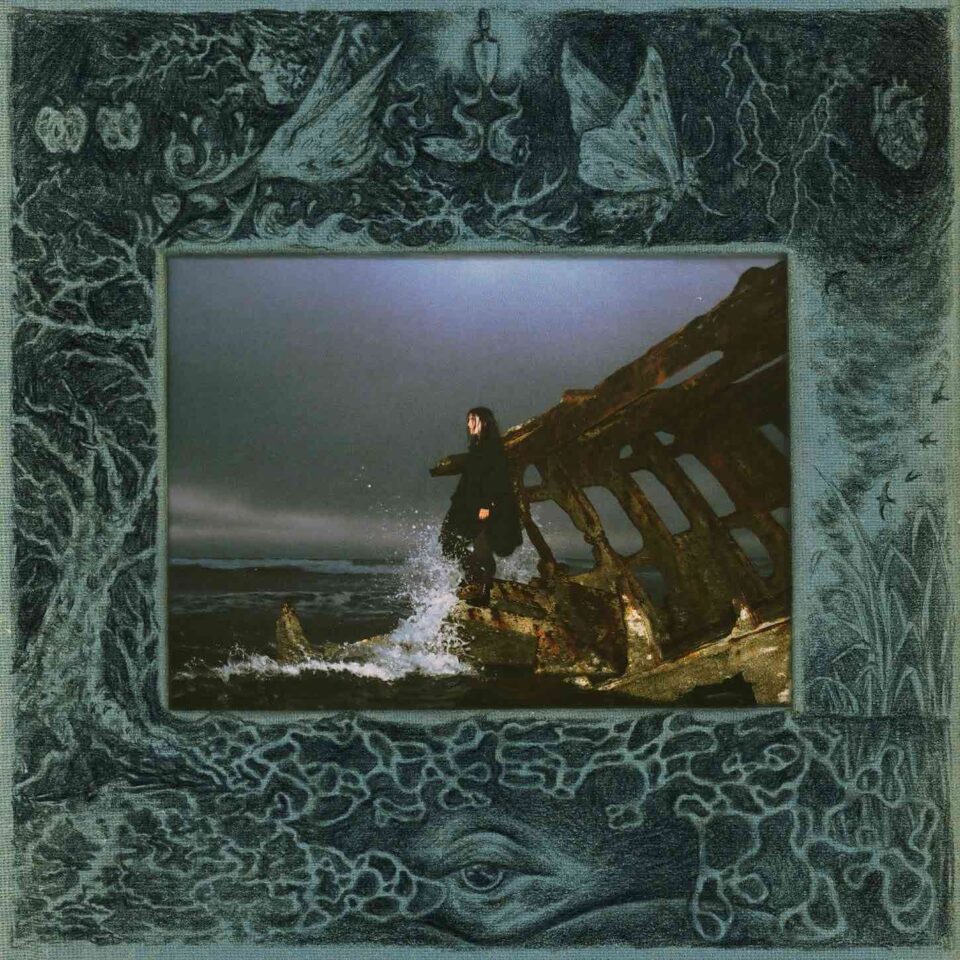“There is no HR in the music industry for the artist.” That’s the realization Hannah Reid of London Grammar came to when she was diagnosed with fibromyalgia, the result of an unrelenting schedule and ever-increasing pressures placed upon the British trio during their first two album cycles stretching across a five-year period. With the release of the group’s third album, Californian Soil, Reid is determined not to sacrifice her or her bandmates’ physical or mental health. This is not a recent decision, nor is it a temporary one. Three years ago, when Reid, guitarist Dan Rothman, and multi-instrumentalist Dot Major returned home after a lengthy tour in support of their second album, Truth Is a Beautiful Thing, she knew they had to make changes in order to survive.
“At the start of our career nothing was transparent,” says Reid from her home in the UK. “Things were getting booked left, right, and center without our consent. When you’re a young musician and you’re learning how to be a performer, how to be on stage and do your job well, it’s really difficult to constantly not trust the people we should have been able to trust. There’s nobody that you can turn to and say, ‘Hey, is what’s happening right?’ There needs to be accountability.”
London Grammar came into the public eye over the course of four years. The trio met during the members’ university years in 2009, gained a grassroots following with regular gigs before releasing the Metal & Dust EP to commercial and critical acclaim, followed by a debut album, If You Wait, in 2013. The ramping up happened quickly after Metal & Dust with sold-out tour dates and high-profile festival appearances, strategic television placements, and recognizable advertising syncs, well-respected awards including an Ivor Novello for Best Song Musically and Lyrically for “Strong,” and appearances on the late night circuit. With the release of Truth Is a Beautiful Thing, the merry-go-round just got faster with no pause for a breather.
“When stuff started going wrong with my health, we were coerced multiple times to keep going,” says Reid. “People say it’s not about the money, but it is about the money. You’re a product, essentially. When you’re starting out, you’re so grateful to be where you are—or you’re made to feel like you’re being ungrateful if you don’t go along with everything that’s expected. Plus, the excitement in the beginning keeps you going. But then that sheen wears off, and you eventually have to come back to reality.”
“People say it’s not about the money, but it is about the money. You’re a product, essentially. When you’re starting out, you’re so grateful to be where you are—or you’re made to feel like you’re being ungrateful if you don’t go along with everything that’s expected.”
Things were all too real when Reid wrote what she thought would be her last song, “America.” The track, penned at the height of her fibromyalgia, was written as a goodbye to all the songs she thought she would never write, because she was sure she wouldn’t be able to continue London Grammar due to her health issues. Rothman put his signature guitar on the song, Major did his production magic, and all of a sudden London Grammar was not only still happening, but they were writing their next album.
Even with Reid as the principal songwriter, the trio has always been creatively democratic. Once the album started taking shape, she decided that for the sake of the group’s longevity, how the London Grammar operation was run had to change and become more structured. In order for this to happen, Reid became the public-facing leader of the group—with the full support of Rothman and Major. In this position, the intention was that when it comes to the business side of London Grammar, Reid will be faced with fighting fewer battles and the band’s professional obligations will be easier on her.
“All three of us were taken advantage of. I still get scared about speaking about it too much,” she says. “Number one, because I don’t want to come across as negative, which is a very ‘female’ thing to worry about. Number two, because I get scared of being sued. But I’m getting more and more comfortable speaking about it. It is important to talk about this stuff.”
None of the three bandmates has been very direct in the past. There were always scraps of information known about London Grammar, likely placed as talking points by their team. There were tidbits like Reid’s debilitating stage fright, for example, but there was nothing about their personal lives—other than the odd micro-reveal from Rothman about being a new father, their personal lives are still private. Perhaps rightly so, as comments about Reid’s appearance caused a BBC Radio 1 Twitter fumble some years back, and in a recent NME cover story, she recounts a few other sexist encounters. Until now, the majority of the press and promotional photos of London Grammar showed them looking down, or away, or at an angle from the camera. In their photos for Californian Soil, Reid stares down the lens boldly, almost threateningly, while Rothman and Major maintain their former elusiveness.
“When I lost my health, I lost everything. In that experience, I was enabled. If I’m going to make an album, I may as well lyrically lay bare my soul.”
This directness has carried over in Reid’s lyrics where she’s become more comfortable expressing herself without her customary opacity. Also, in contrast with If You Wait and Truth Is a Beautiful Thing—the ultimate heartbreak albums—Californian Soil deals with topics like bad relationships and being in love, or sexism and the music industry, with a decidedly upbeat tone previously unheard from London Grammar outside of features with the likes of Disclosure or Flume.
London Grammar’s music has always tread a line between the acoustic nature of Reid’s songwriting, Rothman’s playing, and Major’s studio wizardry. Californian Soil—which despite its title and the aforementioned “America,” has nothing to do with the U.S.—leans toward the experimental side for the trio, which itself is more conducive to the buoyant nature of the album. Reid credits this, and her lyrics, interestingly, to her fibromyalgia.
“When I lost my health, I lost everything,” she says. “In that experience, I was enabled. If I’m going to make an album, I may as well lyrically lay bare my soul. It paid off in a way. In doing that, something inside me did shift. I still have fibromyalgia but I have a lot more energy now because I did that.” FL

photo by Crowns & Owls







